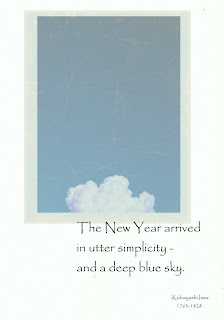From being a leading proponent of the Non-Aligned Movement and safely sailing the choppy waters of the volatile Cold War years, to being criticized as meddling in the internal politics of America, when the current Indian prime minister was seen pitching for an US president vying for a second term, India has come a long way since 1947. How did this change occur? How did India, following a painfully cautious approach in her dealings with foreign powers in Her nascent days as a nation state, evolve into a force reckon with? I have always been curious about that. This book has answered at least most part of that question, in an interesting, at times repetitive way.
First, the positives. The author, Shivshankar Menon, has the credentials to begin with. Having been the foreign secretary and national security advisor to the prime minister, he has had a ringside view of the geopolitical games. He was also a part of the team that convinced the Nuclear Suppliers Group to supply nuclear material. So, when someone like that writes a book, credibility is assured.
Also, the author makes it easy for us to understand India’s geopolitical past by breaking it into decades, starting from the days when India achieved independence from British colonialists. That breaking down of the entire past into manageable chunks of decades makes it easy for us to follow the narrative and understand the causes and effects. Being a professor must have come in handy for him to understand how to drive home a point, even one as intricate as global politics. His simple writing style coupled with his unbiased analysis of the policies of the Founding Fathers and the impact of their decisions make for good reading.
Now for the negatives, the book has some unforgiveable printing mistakes, as many of the pages containing the maps are left blank. With many other customers having left similar complaints on Amazon’s book page, this doesn’t seem to be a one-off instance, which is very bad on the part of the publishers. Two, for a book of this volume the font size is pretty small, making for strenuous reading. When it comes to the content, the author starts sounding a tad too repetitive in the second part. His obsession with China is a little tiring too. I was looking to read more about India’s tackling the threat from Pakistan, but the author would rather talk about China, which is understandably a larger threat to India.
The final part, where the author discusses India’s current geopolitical stance is bound to offend some people, especially my friends from right wing. But within these pages are some hard-hitting, bitter facts. Think for yourself! From being a major force that guided nations like Sri Lanka and Nepal through their political crises, brought into existence Bangladesh through a swift war, India is now straining to keep her ties intact with these countries. All this while China has already started meddling in their internal politics and defining their future, as is obvious in countries Pakistan, Sri Lanka and Nepal. Even the faraway African countries are feeling the reach of China’s tentacles through BRI initiative and ‘string of pearl’ port constructions. Blaming it on the divisive politics of the incumbent government and showmanship that has little to show in terms of performance, the author finishes the book with a clear warning of the tough days ahead for India, if she chooses to ignore the highly volatile external developments, dividing the country based on an over-hyped halcyon past.
Right or wrong, India had an aura of neutrality in the past, having stayed as far from the power games of bipolar world as possible. That is why she could adapt without much difficulty to the post-Cold War world, when a more considerate USSR disintegrated. But the growth of ultranationalist forces within, that view even external relationships in terms of binaries of with us or against us – effects of association with the US, no doubt – leave India walking on thin ice on many fronts. The most glaring example is the current conflict between Ukraine and Russia, where by virtue of closer association, US is forcing India to condemn Russia on international forums but the enduring age-old ties and growing concerns on the immediate neighborhood force India to be more restrained on her views of the conflict. Result? India is being seen as an uncooperative partner by many in the West.
Not that the views of the hypocritical west matters, but an India that is trying to become the ‘Vishwaguru’, a force to reckon with not just in Asia but across the world, that surpassed some of the major western powers in economic growth, has to firmly make a stance on what she’s going to be – a compliant ally playing second fiddle to the tunes of major powers from West or blaze a path that is truly worthy of emulation by all, in terms of politics, unity, economic growth and overall well-being of her citizens. As Abe Lincoln once told, ‘a house divided against itself cannot stand’ and an India, trying to amplify the sins and glories of a distant past, cannot withstand the political whirlwind that is brewing in her immediate neighborhood. The author finishes the book with hopeful words of how a united India, with all her citizens marching together, holding high her flag of pluralism, can regain primacy on all fronts – domestic or international. And, I finished it with hopes too.
4.5 stars!





